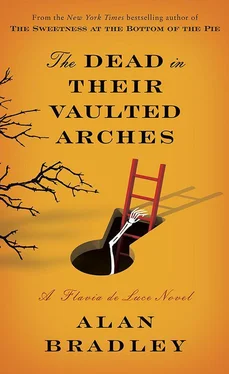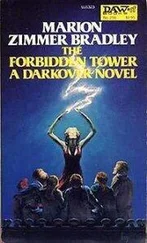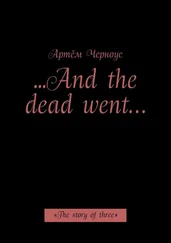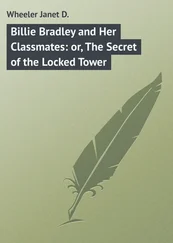My eyes must have widened. “Restoration of life?”
“Just so,” Dogger said.
“You’re pulling my leg!”
“Not at all,” Dogger said, giving the plant a gentle shake to dislodge the old soil. “Professor Kano’s methods were used for a time, I believe, in certain special instances by the Royal Life Saving Society, in cases of drowning.”
“They restored drowning victims to life? Dead people?”
“I believe so,” Dogger said. “Of course I never actually witnessed it myself, but I was nevertheless taught the sharp blow which was needed to restore life to the dead.”
“Show me!” I said.
Dogger stood up and turned round. “Stick your finger into my spine.”
I gave him a halfhearted prod.
“Higher,” he said. “A little higher yet. Yes, that’s it. The second lumbar vertebrum. A sharp blow there with the second knuckle will do the trick.”
“Shall I try it?” I asked eagerly. “Get ready!”
“No,” Dogger said, turning round to face me. “In the first place, I’m not dead, and in the second, the fatal blows are never actually delivered except in cases of dire emergency. In practice, it is sufficient to announce them.”
“Biff!” I said, delivering a powerful punch with a projecting knuckle, but pulling it at the last possible instant. “Consider it delivered!”
“Thank you,” Dogger said. “Very good of you, I’m sure.”
“Phew!” I said. “Imagine that: the resurrection of the dead by a poke in the back. There’s no mention of that in the Bible, but perhaps Jesus wasn’t aware of it.”
“Perhaps.” Dogger smiled.
“It seems crazy, doesn’t it? Completely crazy, when you come right down to it, I mean.”
“Perhaps,” Dogger said again, “and perhaps not. It is quite widely known that in the primitive societies, and perhaps no less in our own, the healers are quite often neurotics or psychotics.”
“Meaning?”
“That they suffer from certain nervous disorders—that they may even be deranged.”
“Do you believe that?”
The greenhouse was so still that I fancied I could hear the plants growing.
“Sometimes I must, Miss Flavia,” Dogger said at last. “I have no other choice.”
Those, then, had been the two instances that had set my mind on restoring Harriet to life. Although the very thought of such a thing might be repellent to some, I found it nevertheless exciting. Exhilarating, even!
In the first place, I had no fear of corpses: none whatsoever. The past year had brought me face-to-face with a half dozen of the deceased, and I must admit that I had found them all, each in his or her own way, far more interesting than their living counterparts.
Then, too, there was Father. How deliriously happy he would be to have his beloved restored to him! In all the years I could remember, I had never seen Father smile—I mean really smile and show his teeth.
With Harriet home and alive and happy among us on the drawing room hearth, Father would be a different person. He would laugh, make jokes, hug us, ruffle our hair, play games with us, and, yes, perhaps even kiss us.
It would be like living in an earthly paradise: a modern-day land of Cockaigne, such as is seen in those paintings by Pieter Brueghel that Feely is so fond of; a land of milk and honey in which there was no rationing, no bitterly cold rooms, and no decay.
Buckshaw would be new again, and we all of us would live together happily ever after until the cows came home.
All I needed now was to work out a few of the chemical details.
TEN
WHEN I TURNED THE key in the lock of my laboratory and stepped inside, I found Esmeralda perching contentedly on a nearby test-tube rack and Undine boiling an egg over a Bunsen burner.
“What are you doing in here?” I demanded. “How dare you! How did you get in?”
The place was becoming as peopled as Paddington Station.
“I came across the roofs,” she said cheerily, “and down that little staircase.” She pointed.
“Bugger!” I’m afraid I said, making a mental note to install a deadbolt.
“I needed to talk to you,” she said, before I could say something worse.
“Talk to me? Why ever would you want to do that?”
“Ibu said I was never to go to bed angry with anyone.”
“Well, what difference does that make? Besides, it isn’t bedtime yet.”
“No,” Undine agreed, “it isn’t. But Ibu sent me for my nap, and a nap counts as bed, doesn’t it?”
“I suppose it does,” I said grudgingly. “But what has that to do with me?”
“I’m cheesed off with you.” She pouted, planting her fists on her hips. “I have a bone to pick with you and I can’t possibly nap until we’ve had a jolly good chin-wag about it.”
“Chin-wag?”
“A powwow. A council of war.”
“And what ,” I asked, making my voice drip with sarcasm, “have I done to deserve your displeasure?”
“You treat me like a child.”
“Well, you are a child.”
“Of course I am, but that’s hardly reason enough to treat me like one, do you see what I mean?”
“Yes, I think I do,” I admitted.
How Daffy is going to love talking to this curious, nitpicking little creature! I thought.
“What, in particular, have I done?” I was almost afraid to ask.
“You underestimate me,” she said.
I nearly chucked my kippers. “Underestimate you?”
“Yes, you set me at naught.”
“I beg your pardon?” I laughed. “Do you even know what that means?”
“Set me at naught. It means you disbelieved me. You disbelieved me about the saltwater crocodile and you disbelieved me again when I told you that Ibu and I were at the railway station this morning.”
“I did not!”
“Come off it, Flavia—admit it.”
“Well,” I said, “perhaps just a little …”
“See?” Undine crowed. “I told you so! I knew it!”
A sudden clever thought popped into my mind. Daffy had more than once accused me of possessing a certain low cunning, and she was right.
“When did you arrive at the station? Before or after the train?”
“Before—but only just. Ibu said, ‘Here it comes now’ as she was parking at the end of the platform.”
“Which end?” I asked, almost too casually.
“The far end. I don’t know my directions very well, but the end farthest from Buckshaw.”
“The south end,” I said. “The direction from which the train arrived.”
Undine nodded. “Near the luggage trolley.”
Now I knew she was telling the truth. Although there had been no luggage trolleys on the platform at Buckshaw Halt for years, someone had managed to rustle one up from somewhere for the occasion of Harriet’s sad return. Part of my mind had noticed it being piled high with the luggage of those strangers, whoever they may be, who had brought her body home.
“Let’s play a game,” I suggested brightly.
“Oh,” Undine said. “Yes, let’s. I adore games.”
“Do you know how to play Kim’s Game?”
“Of course ,” she scoffed. “Ibu used to read to me from Kim at bedtime in Sembawang. She said it was a good fairy tale, even if Kipling was a goddamn Tory, and a jingoist to boot. He visited Sembawang, you know.”
“Jingoist?” She had caught me by surprise. It was likely that even Daffy didn’t know the meaning of the word.
“Yes, you know: like in the song.”
And she began to sing in a curiously sweet and innocent voice:
“We don’t want to fight but by jingo if we do ,
“We’ve got the ships, we’ve got the men, we’ve got the money, too!
“Old England and Saint George!” she shrieked suddenly. “One, two, three, four, five, six, seven, eight, nine, ten, eleven, twelve!
Читать дальше












